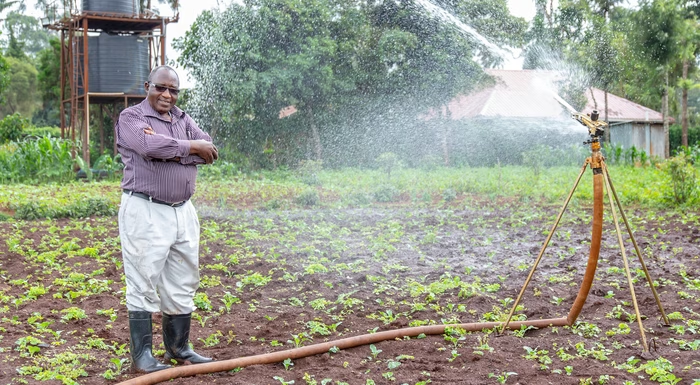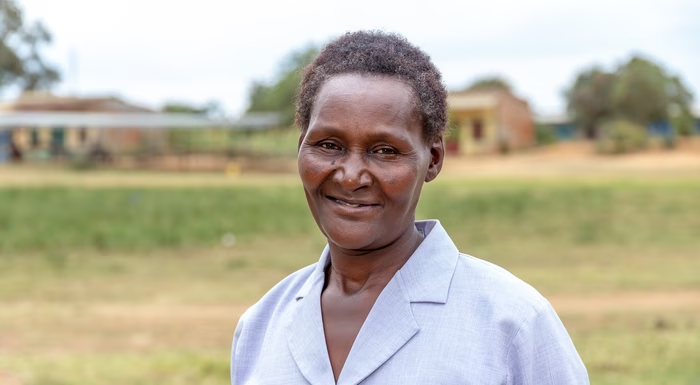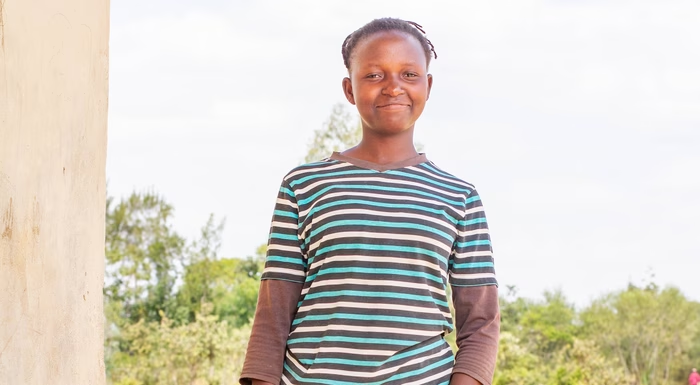Closing the gap between Rwamburi and the water its families need to survive
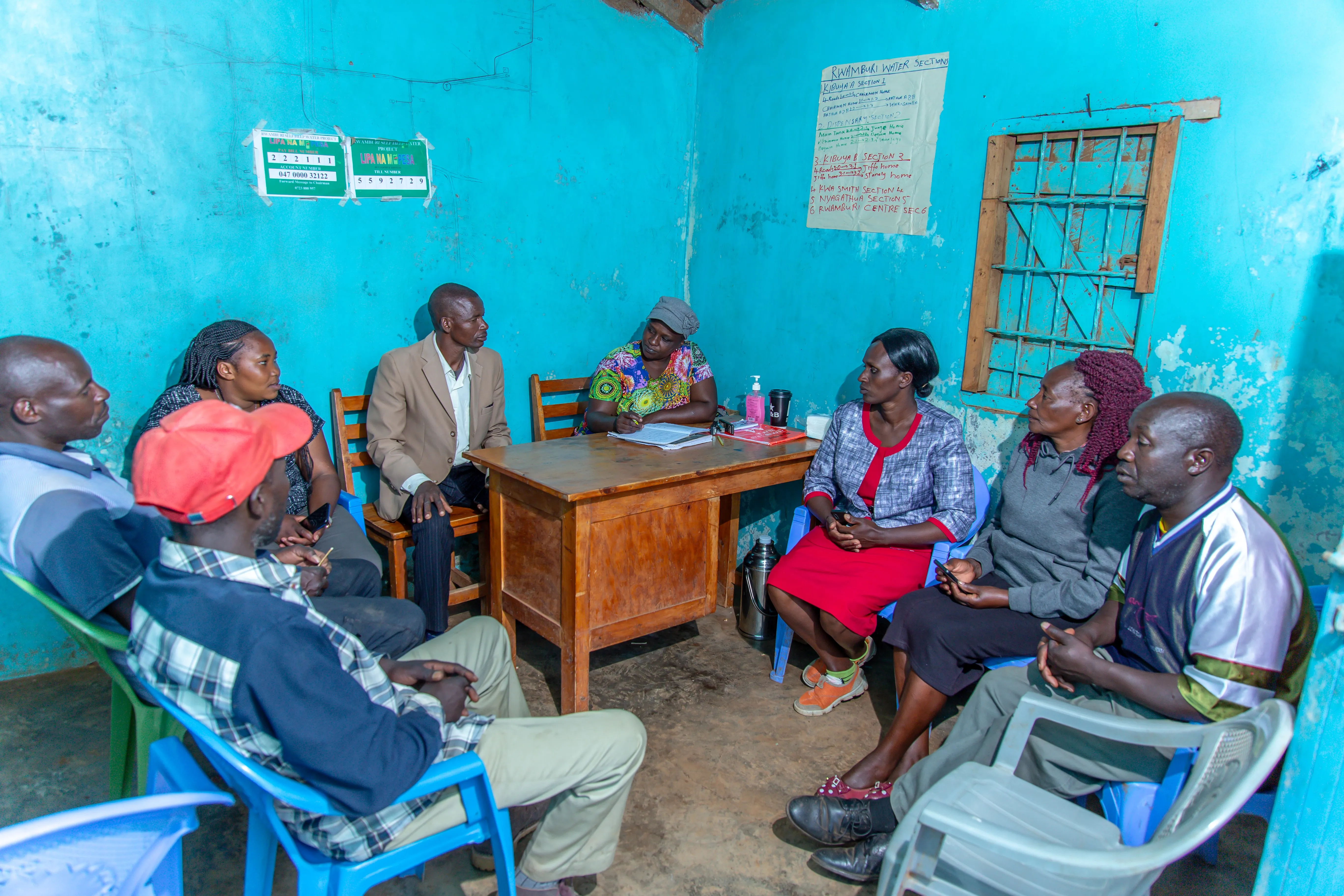
The Rwamburi Water Project committee meets weekly to discuss improvements and budgets to ensure everyone in the region can get access to safe water.
Led by community members of Rwamburi, a semi-arid region in Southwestern Kenya, the Rwamburi Water Project was formed after the families in the region attempted many times to set up community-based water sources like boreholes that eventually failed them. Without money to rebuild or repair the boreholes, the people of Rwamburi abandoned the idea of having a community water source.
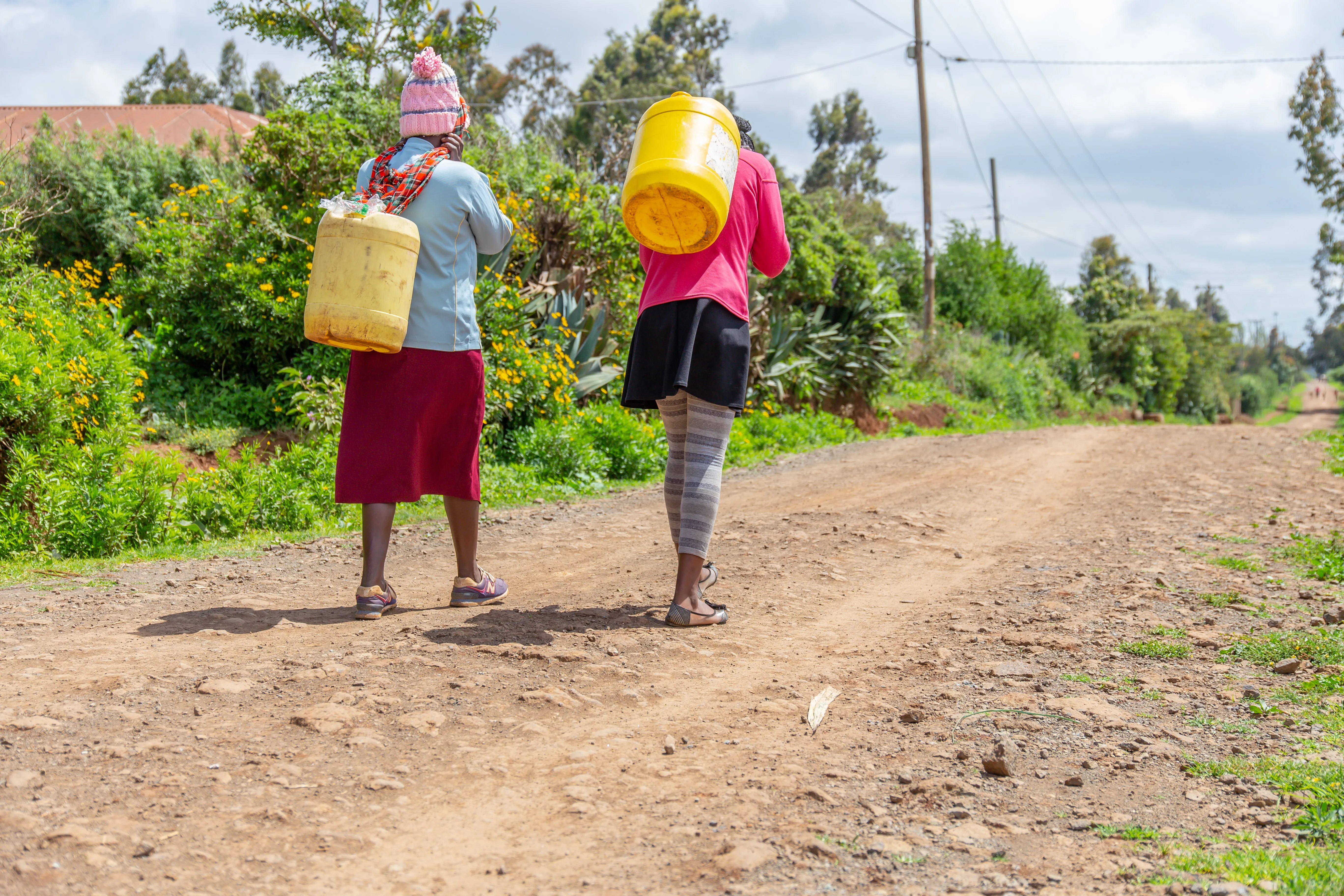
When water sources dry up or fail, women and children like these girls in Rwamburi must return to finding and collecting water from distant sources.
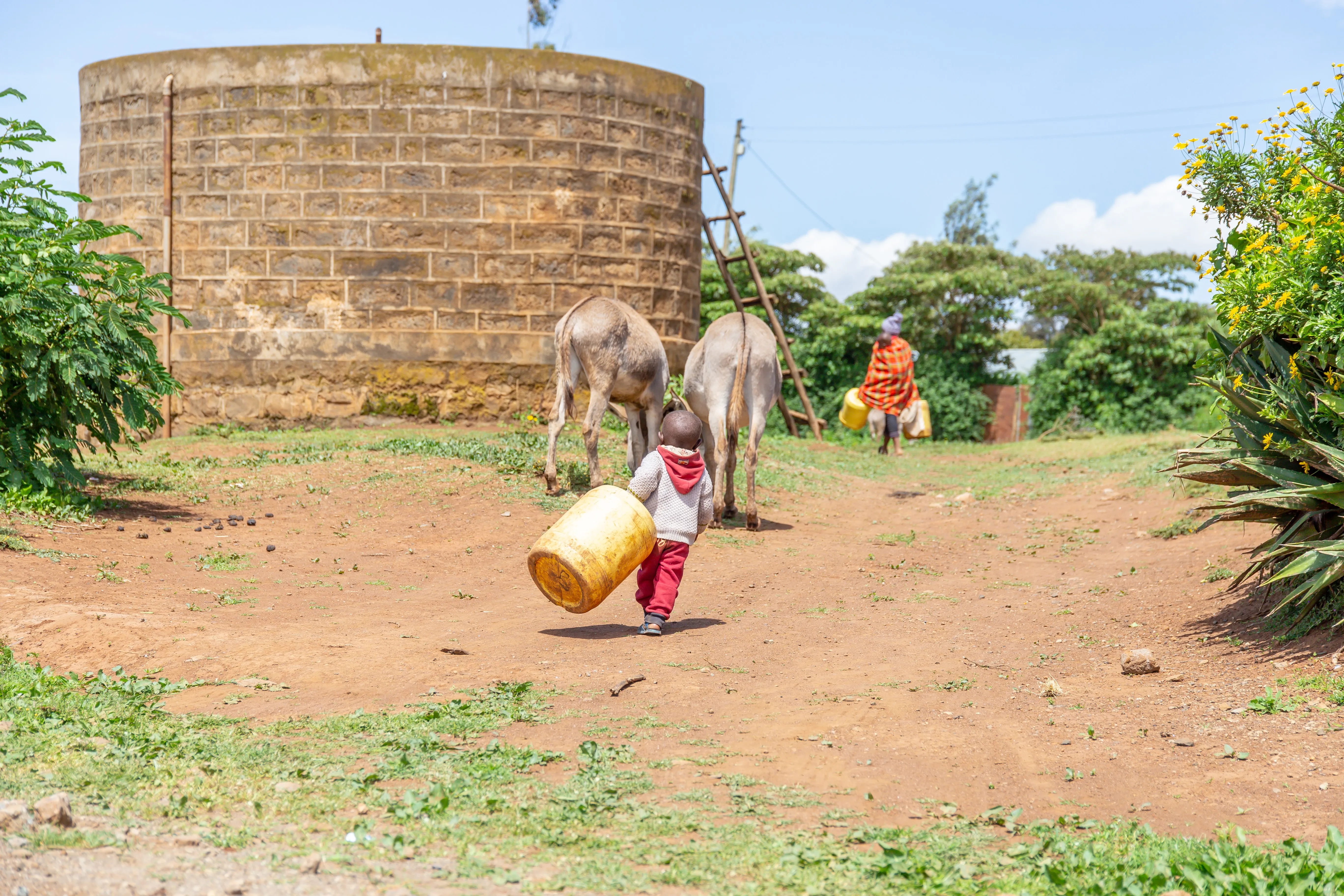
A small child runs to catch up with his mom to collect water in Rwamburi.
In 2021, women and children in Rwamburi had returned to walking to collect water from distant sources like rivers and ponds that were often more than four miles from their homes. Concerned with the limited water supply and quality of the water they were consuming, the Rwamburi Water Project committee formed in late 2021 with hopes of finding an affordable, safe, sustainable solution to their community’s water crisis.
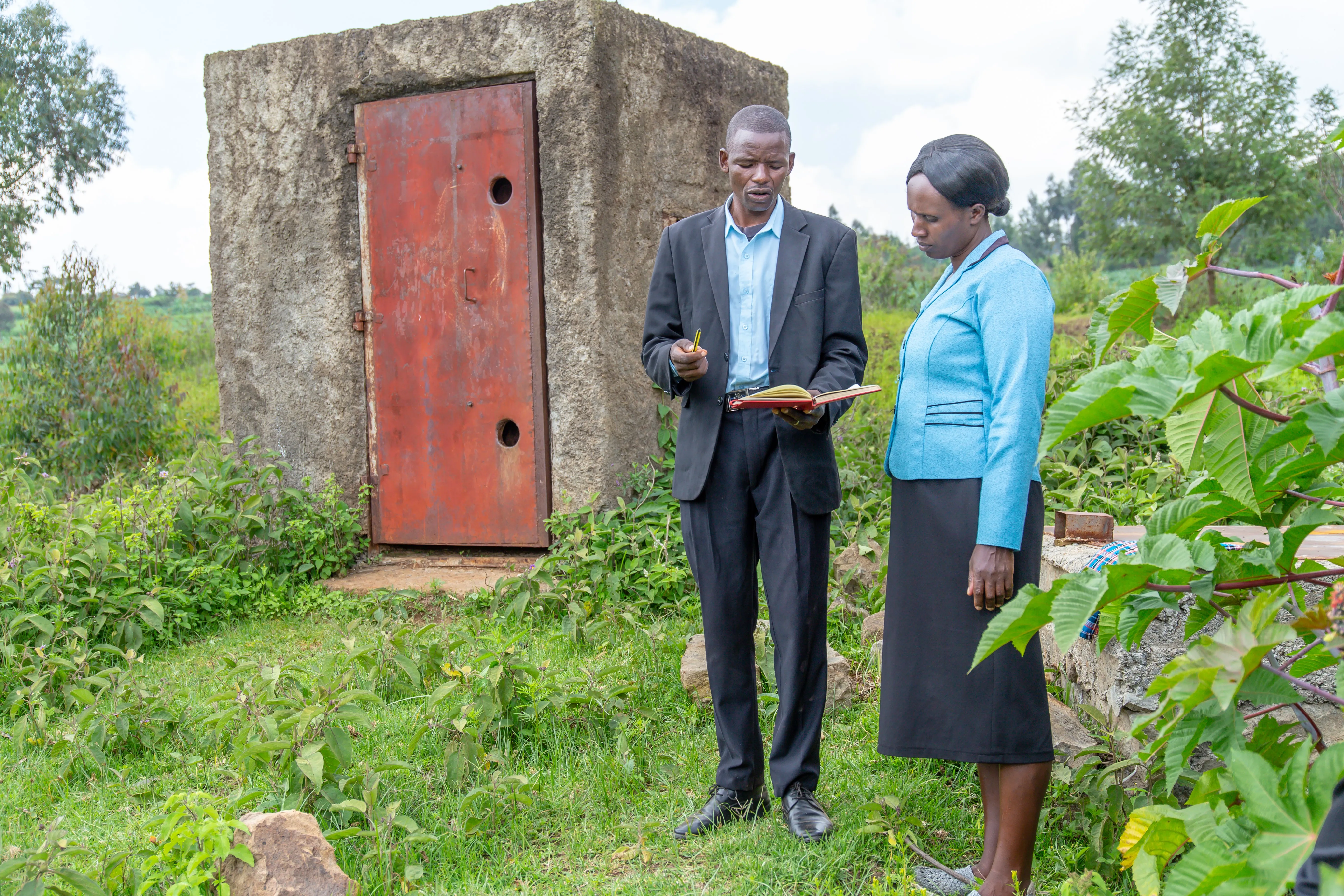
John is the Chairman of the Rwamburi Water Project and Catherine is the Treasurer.
John and seven other individuals were elected by the community to manage the group’s bank account and water plans. They went to Family Bank, where they had an account with funds pulled together by the community. At the time, the account had 1,350 Kenya Shillings in it, around USD $9. A Water.org partner, Family Bank was prepared to offer the Rwamburi Water Project an affordable solution designed specifically to help solve their water needs. Through Family Bank, the group was able to secure a loan with which they purchased a new, powerful pump for their old borehole.
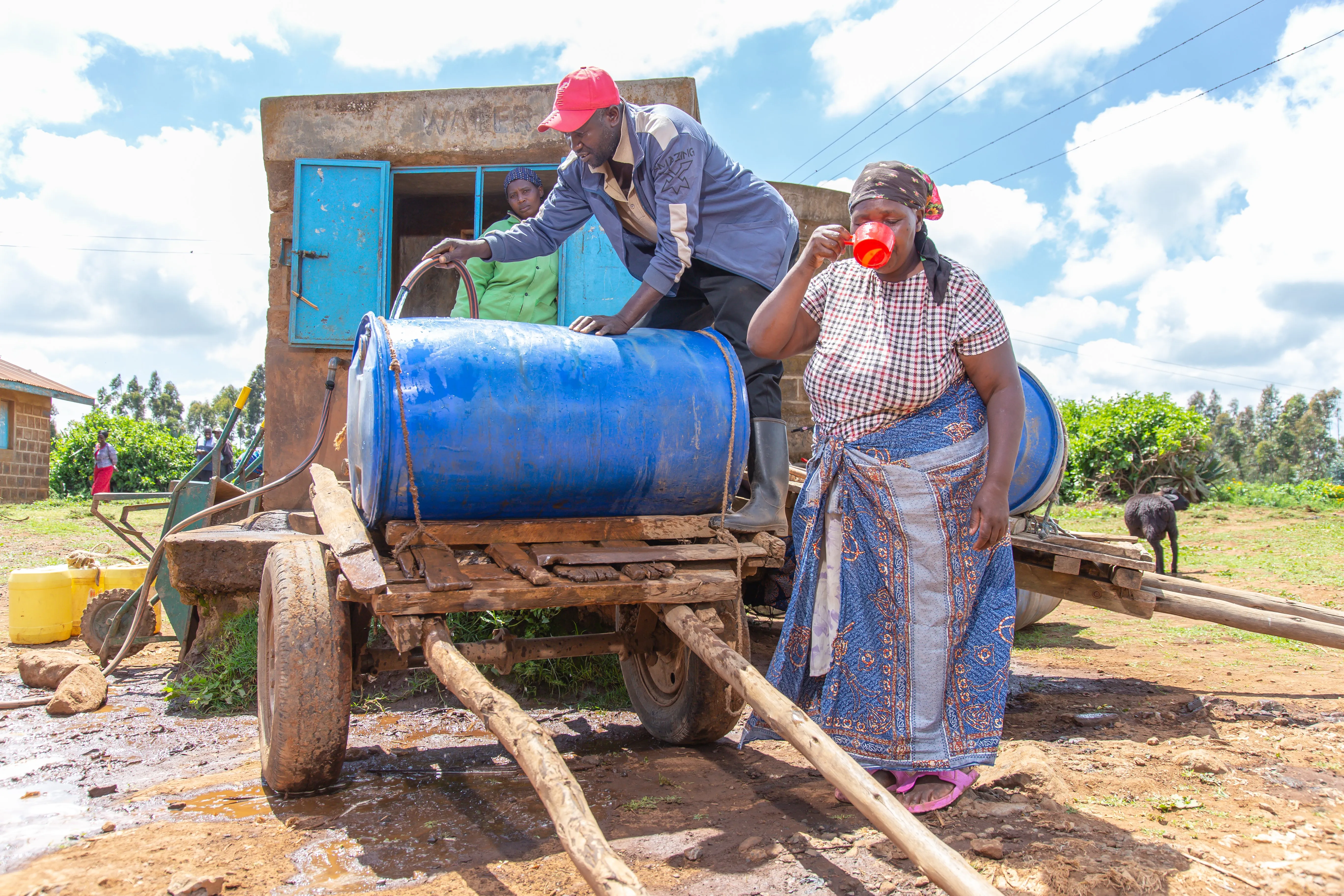
In addition to piped connections to homes and institutions, the Rwamburi Water Project offers affordable water from their pumping station so vendors can purchase it and sell it to households in and out of the region that may not have connections yet.
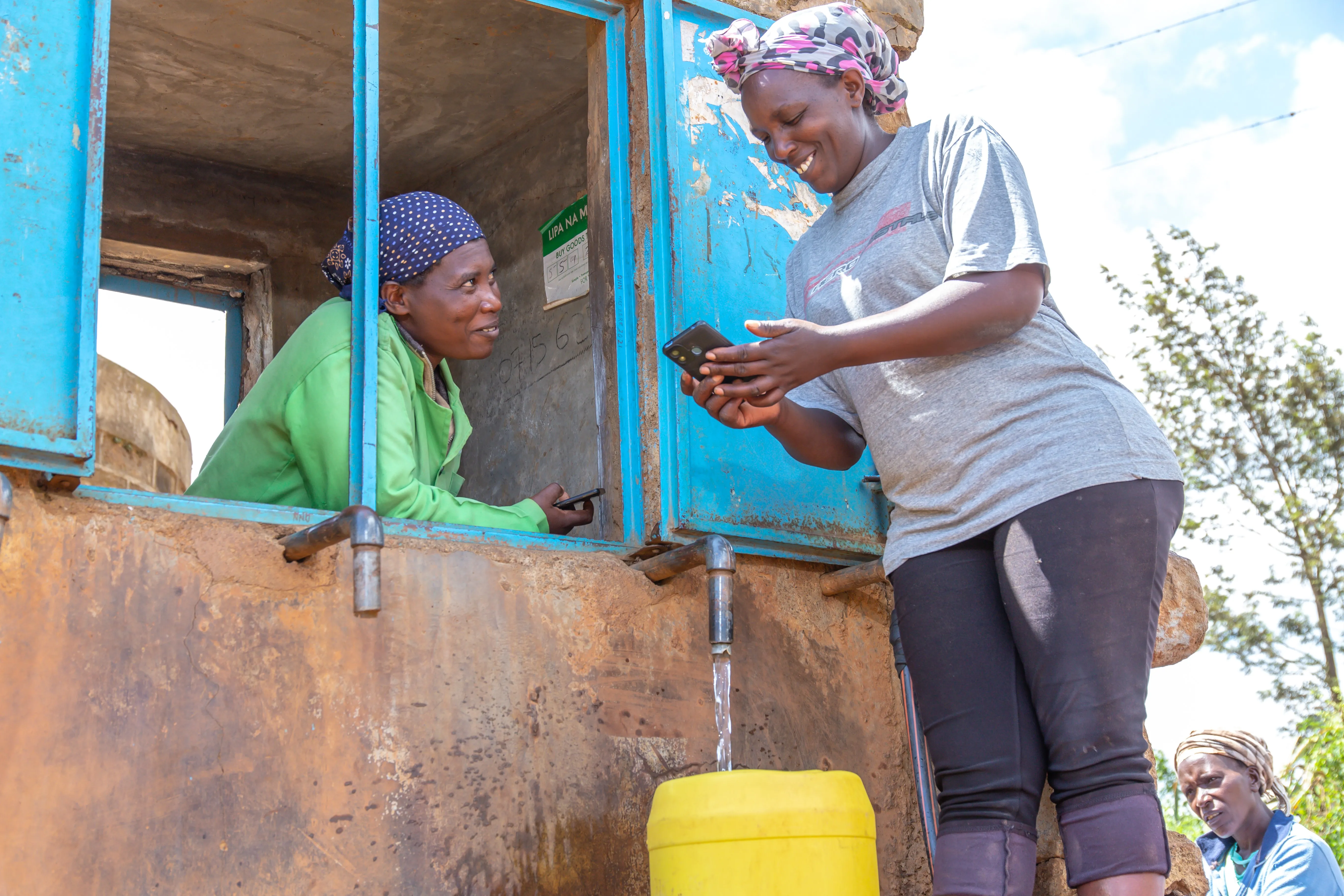
The new pump in place, Rwamburi Water Project now supplies water to the community schools, hospitals, government facilities, 300 metered households (which is just about everyone in Rwamburi), and water vendors. To repay the group loan, Rwamburi Water Project committee asks that their water recipients simply pay their affordable water bills directly to the bank.
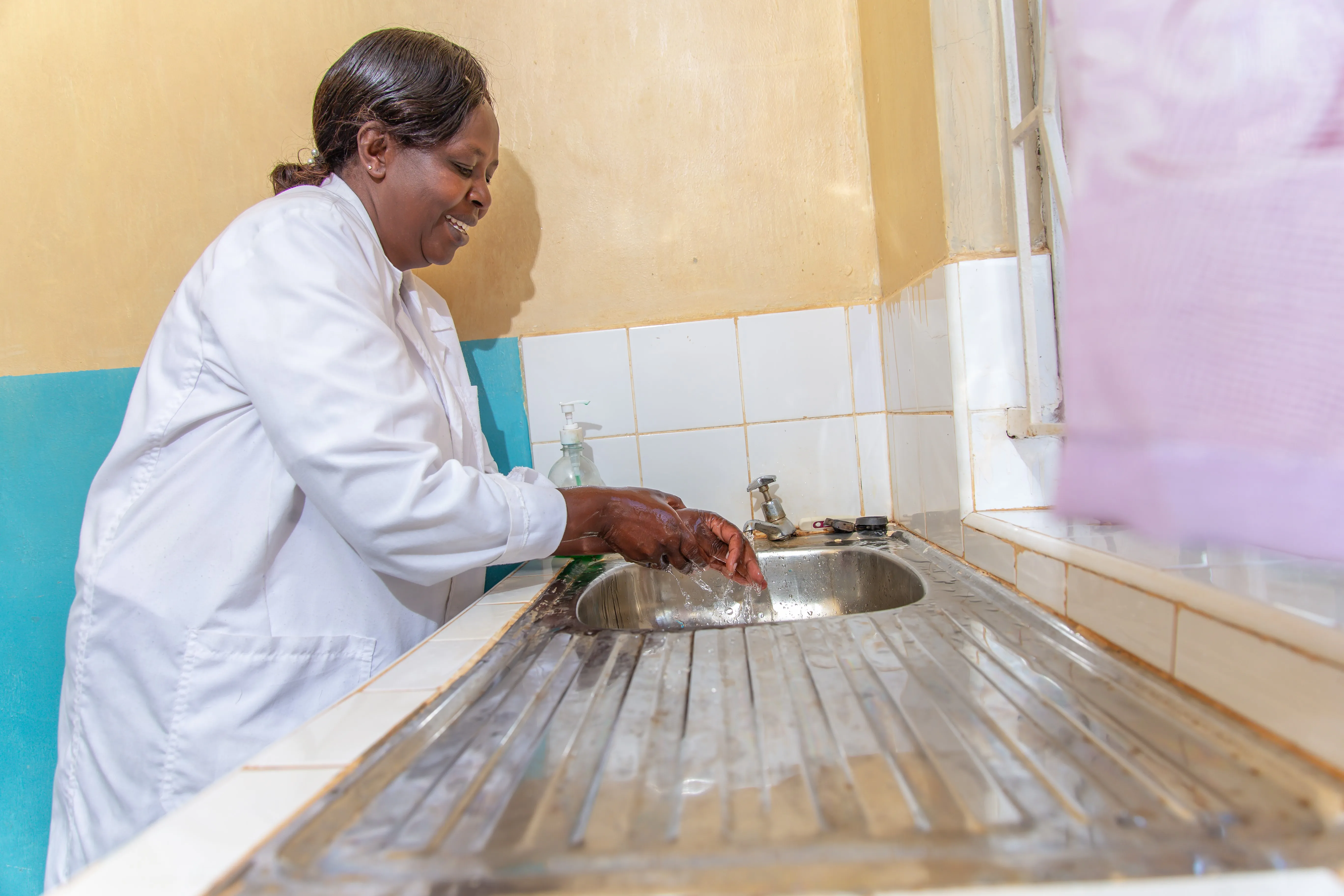
After seeing a patient, a doctor at the local Rwamburi hospital washes her hands with water from her facility's water connection.
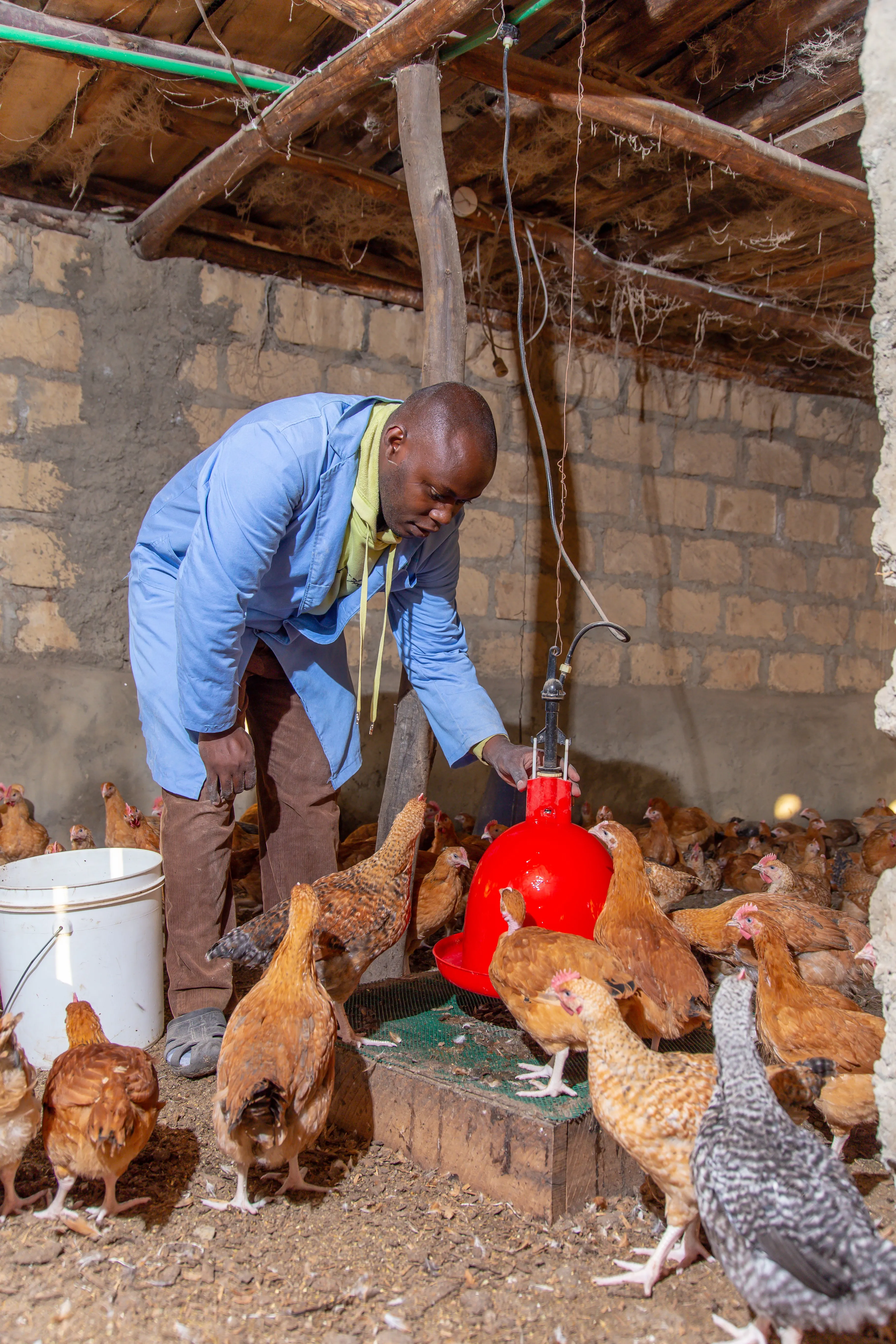
A local farmer can now feed and water his chickens with the water flowing to his property.
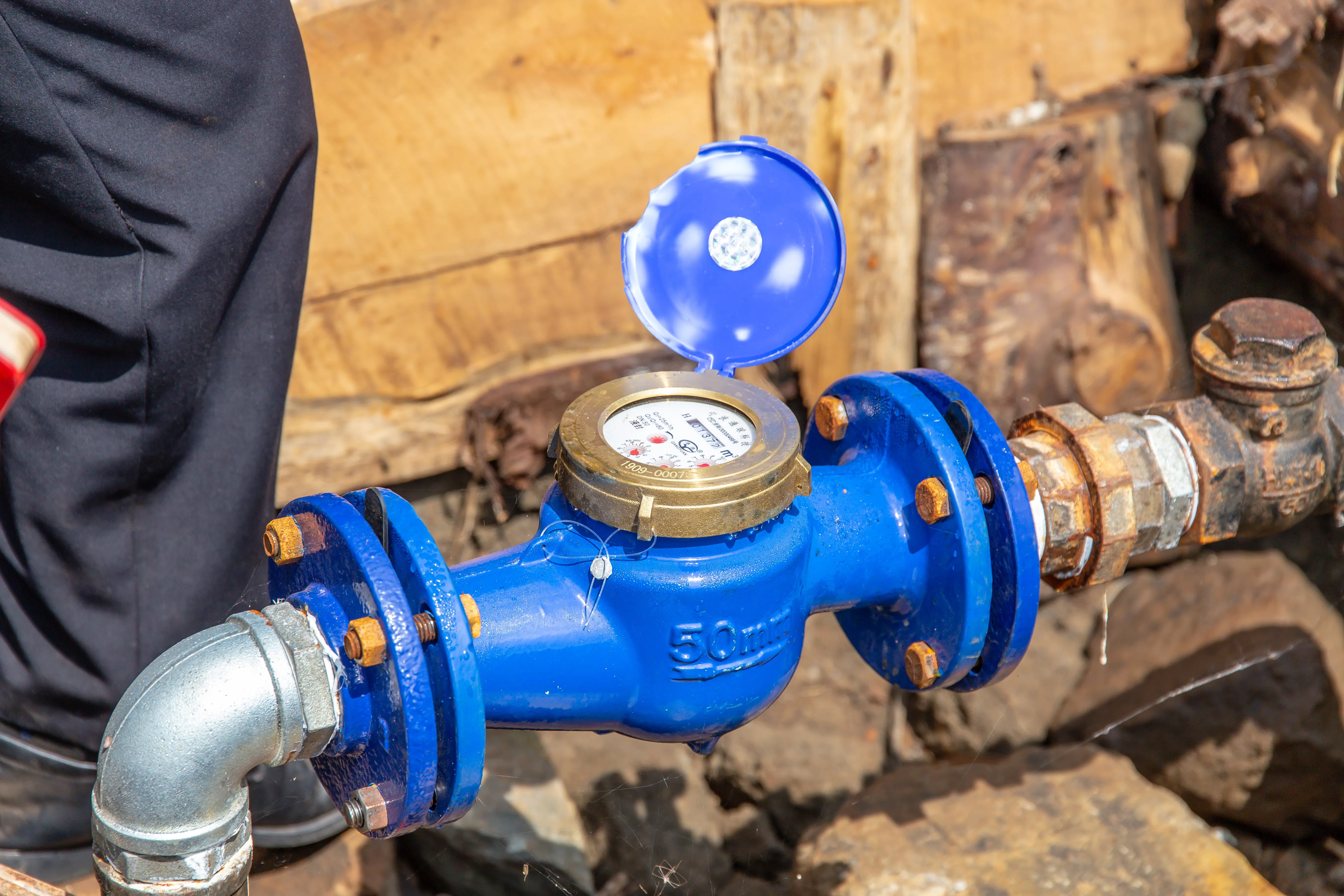
Thanks to the Rwamburi Water Project, more than 300 households in the region have metered safe water connections at home.
“Helping them get the pump that they needed, they’re now able to supply water to the homes that have subscribed to them, therefore reducing the distance the women had to walk to collect water.”
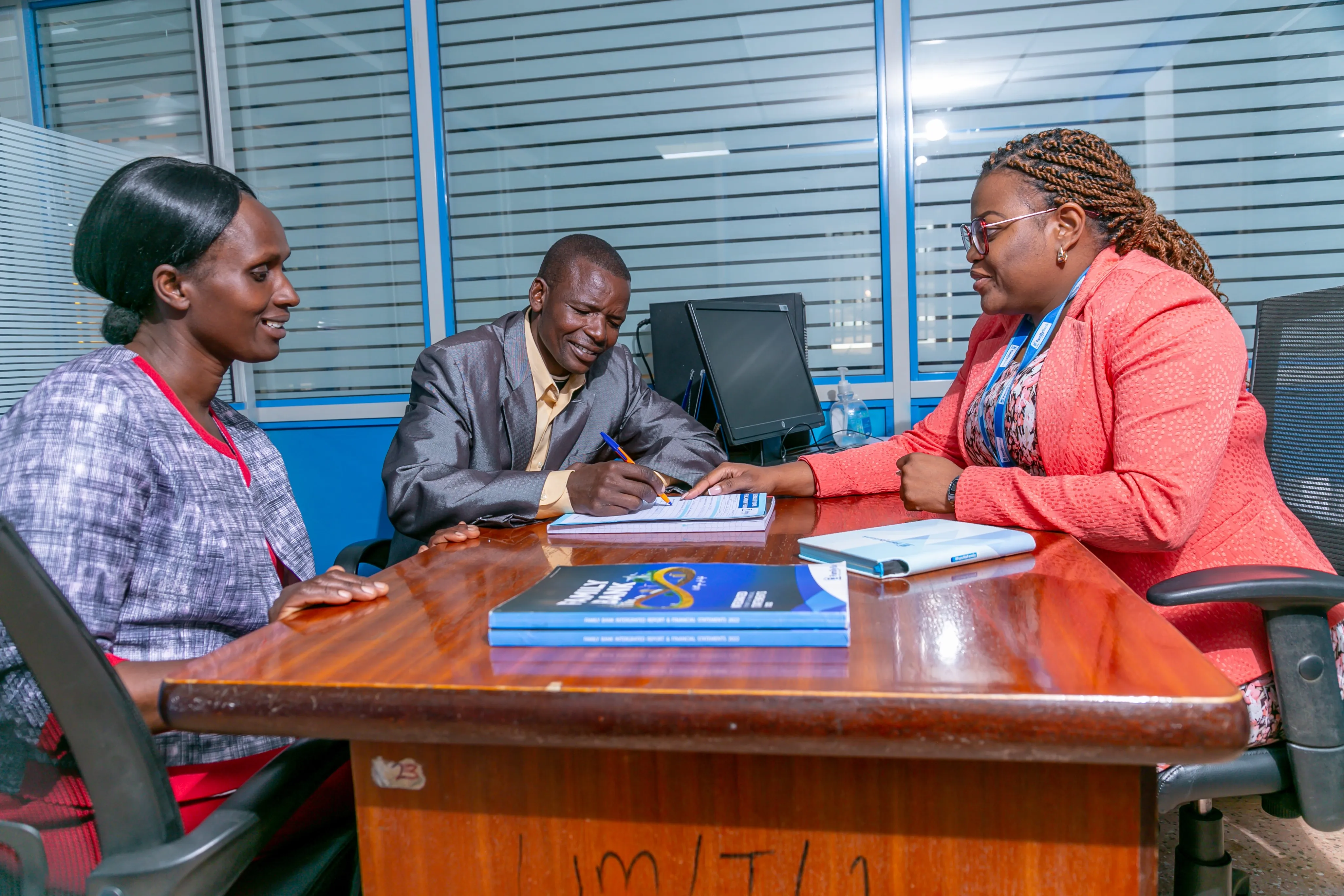
Celina, the branch manager at Family Bank introduced John and Catherine to the concept of financing specifically for safe water solutions.
In summarizing the powerful role financing for safe water solutions played in Rwamburi, Celina, the branch manager at Family Bank explained, “Helping them get the pump that they needed, they’re now able to supply water to the homes that have subscribed to them, therefore reducing the distance the women had to walk to collect water.”
For 2.2 billion people around the world, like the families in Rwamburi, access to funds stands between them and safe water. That’s why Water.org helps bring small loans to those who need access to affordable financing and expert resources to make safe water solutions a reality. By giving to Water.org, you can help close the financial gap between people living in poverty and access to the safe water their families need to survive and thrive.
